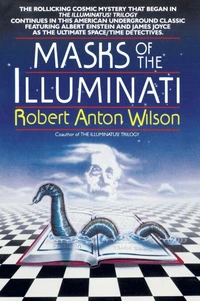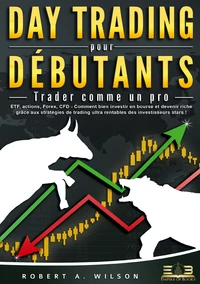The Eugenic Mind Project
Par :Formats :
Disponible dans votre compte client Decitre ou Furet du Nord dès validation de votre commande. Le format ePub protégé est :
- Compatible avec une lecture sur My Vivlio (smartphone, tablette, ordinateur)
- Compatible avec une lecture sur liseuses Vivlio
- Pour les liseuses autres que Vivlio, vous devez utiliser le logiciel Adobe Digital Edition. Non compatible avec la lecture sur les liseuses Kindle, Remarkable et Sony
- Non compatible avec un achat hors France métropolitaine
 , qui est-ce ?
, qui est-ce ?Notre partenaire de plateforme de lecture numérique où vous retrouverez l'ensemble de vos ebooks gratuitement
Pour en savoir plus sur nos ebooks, consultez notre aide en ligne ici
- Nombre de pages352
- FormatePub
- ISBN978-0-262-34388-6
- EAN9780262343886
- Date de parution22/12/2017
- Protection num.Adobe DRM
- Taille698 Ko
- Infos supplémentairesepub
- ÉditeurThe MIT Press
Résumé
An examination of eugenic thinking past and present, from forced sterilization to prenatal screening, drawing on experience with those who survived eugenics. Part science and part social movement, eugenics emerged in the late nineteenth century as a tool for human improvement. In response to perceived threats of criminality, moral degeneration, feeble-mindedness, and "the rising tide of color, " eugenic laws and social policies aimed to better the human race by regulating reproductive choice through science and technology.
In this book, Rob Wilson examines eugenic thought and practice-from forced sterilization to prenatal screening-drawing on his experience working with eugenics survivors. Using the social sciences' standpoint theory as a framework to understand the intersection of eugenics, disability, social inclusiveness, and human variation, Wilson focuses on those who have lived through a eugenic past and those confronted by the legacy of eugenic thinking today. By doing so, he brings eugenics from the distant past to the ongoing present. Wilson discusses such topics as the conceptualization of eugenic traits; the formulation of laws regulating immigration and marriage and requiring sexual sterilization; the depiction of the targets of eugenics as "subhuman"; the systematic construction of a concept of normality; the eugenic logic in prenatal screening and contemporary bioethics; and the incorporation of eugenics and disability into standpoint theory. Individual purchasers of this book will receive free access to the documentary Surviving Eugenics, available at EugenicsArchive.ca/film.
In this book, Rob Wilson examines eugenic thought and practice-from forced sterilization to prenatal screening-drawing on his experience working with eugenics survivors. Using the social sciences' standpoint theory as a framework to understand the intersection of eugenics, disability, social inclusiveness, and human variation, Wilson focuses on those who have lived through a eugenic past and those confronted by the legacy of eugenic thinking today. By doing so, he brings eugenics from the distant past to the ongoing present. Wilson discusses such topics as the conceptualization of eugenic traits; the formulation of laws regulating immigration and marriage and requiring sexual sterilization; the depiction of the targets of eugenics as "subhuman"; the systematic construction of a concept of normality; the eugenic logic in prenatal screening and contemporary bioethics; and the incorporation of eugenics and disability into standpoint theory. Individual purchasers of this book will receive free access to the documentary Surviving Eugenics, available at EugenicsArchive.ca/film.
An examination of eugenic thinking past and present, from forced sterilization to prenatal screening, drawing on experience with those who survived eugenics. Part science and part social movement, eugenics emerged in the late nineteenth century as a tool for human improvement. In response to perceived threats of criminality, moral degeneration, feeble-mindedness, and "the rising tide of color, " eugenic laws and social policies aimed to better the human race by regulating reproductive choice through science and technology.
In this book, Rob Wilson examines eugenic thought and practice-from forced sterilization to prenatal screening-drawing on his experience working with eugenics survivors. Using the social sciences' standpoint theory as a framework to understand the intersection of eugenics, disability, social inclusiveness, and human variation, Wilson focuses on those who have lived through a eugenic past and those confronted by the legacy of eugenic thinking today. By doing so, he brings eugenics from the distant past to the ongoing present. Wilson discusses such topics as the conceptualization of eugenic traits; the formulation of laws regulating immigration and marriage and requiring sexual sterilization; the depiction of the targets of eugenics as "subhuman"; the systematic construction of a concept of normality; the eugenic logic in prenatal screening and contemporary bioethics; and the incorporation of eugenics and disability into standpoint theory. Individual purchasers of this book will receive free access to the documentary Surviving Eugenics, available at EugenicsArchive.ca/film.
In this book, Rob Wilson examines eugenic thought and practice-from forced sterilization to prenatal screening-drawing on his experience working with eugenics survivors. Using the social sciences' standpoint theory as a framework to understand the intersection of eugenics, disability, social inclusiveness, and human variation, Wilson focuses on those who have lived through a eugenic past and those confronted by the legacy of eugenic thinking today. By doing so, he brings eugenics from the distant past to the ongoing present. Wilson discusses such topics as the conceptualization of eugenic traits; the formulation of laws regulating immigration and marriage and requiring sexual sterilization; the depiction of the targets of eugenics as "subhuman"; the systematic construction of a concept of normality; the eugenic logic in prenatal screening and contemporary bioethics; and the incorporation of eugenics and disability into standpoint theory. Individual purchasers of this book will receive free access to the documentary Surviving Eugenics, available at EugenicsArchive.ca/film.










